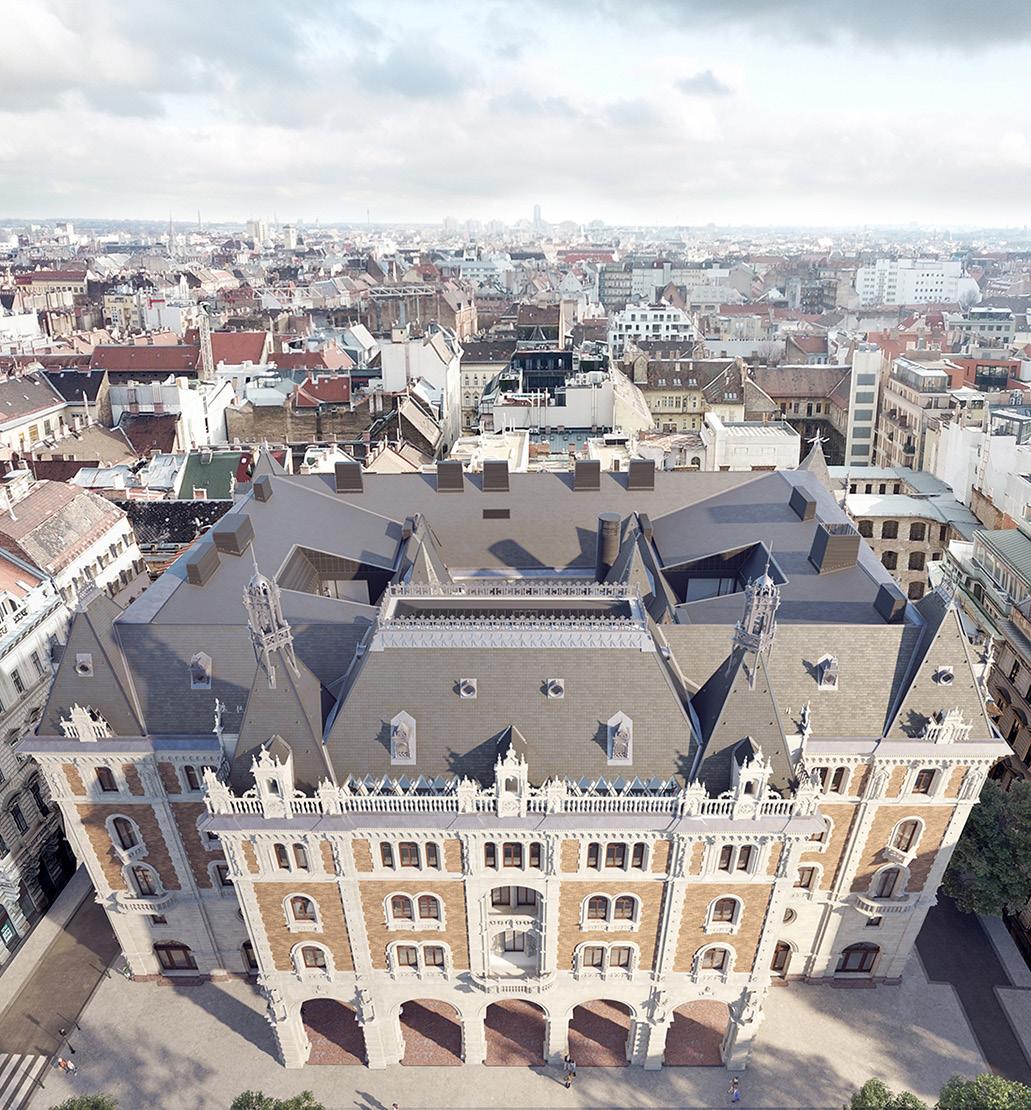
2 minute read
HUNGARIAN REAL ESTATE
Hotel Sector Shows Potential for Resurgence
Go back a couple of years, and developers, investors, and operators saw strong potential for the hotel sector set against a background of rising tourist numbers and hotel occupancy rates well above 80% for Budapest. However, since then, the hospitality market has been hit hard across the region by coronavirus and now the impact of the war in Ukraine.
The Drechsler Palace will become the W Budapest.
By Gary J. Morrell
Further issues include rising inflation and interest rates, increasing operational costs, and the expectation for everstricter ESG regulations for hotel owners and operators.
From a demand perspective, Budapest could return to pre-pandemic levels of around 12 million annual visitors by next year, according to figures presented by the hospitality consultants STR at HOTCO 2022 (the Hotel Investment Conference for CEE & Caucasus) at the Kempinski Hotel Corvinus Budapest at the end of May.
As a walk around the historical center of Budapest reveals, individual tourists have returned, mainly from Western Europe. However, Southeast Asian tourists are lacking. Large tourist groups visiting Budapest are notable by the absence, although some hoteliers are now reporting the return of river cruise groups from the United States. Further, a recovery in business travel has not occurred. Growing concerns over the environmental impact of air travel and the ability to conduct business online, as was enhanced during the lockdown, mean significant questions remain as to whether business travel will return to pre-pandemic levels. The MICE (Meetings, Incentives, Conferences, Exhibitions) sector is expected to recover even more slowly; large-scale events, once canceled, take a long time to re-arrange.
Despite the perceived complexities of hotel projects in comparison with the more established market sectors, Budapest and Hungary, in general, have attracted developers and investors from the more traditional commercial property sectors seeking long-term partnerships ranging from longterm leases to franchise agreements with hotel operators for the day-to-day operation of the projects.
A large number of hotel projects are at various stages in the preparation and construction process in Hungary, although pipelines are difficult to estimate, and schedules have a tendency to slip in the current uncertain market environment. Indeed, several projects have been put on hold with no new delivery dates announced. Even so, the pipeline appears to remain strong, and more hotel investment discussions are expected to restart.
Hospitality consultancy Horwath HTL has an estimated 2022 pipeline for Budapest of six hotels totaling 490 rooms and 10 hotels constituting 1,474 rooms for next year. The total pipeline between now and 2026 is put at 32 hotels with a total of 4,418 rooms.
“The hotel pipeline is a very fluid number, and it is very difficult to judge how many of the projects will materialize. This is due


